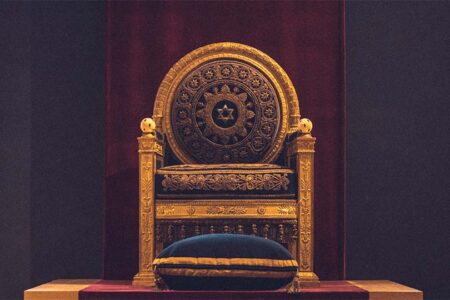Q: What Was Christ’s Self-Emptying?
The apostle Paul’s statement about Jesus in Philippians 2 has been misunderstood and misinterpreted over the centuries. What did Paul mean when he wrote the following?
Who, being in the form of God, did not consider it robbery to be equal with God, but made Himself of no reputation, taking the form of a bondservant, and coming in the likeness of men. And being found in appearance as a man, He humbled Himself and became obedient to the point of death, even the death of the cross (vv. 6–8).
The Greek word for “reputation” (kenoo, v. 7) literally means “to empty.” This Scripture is commonly called the kenosis passage, a theological term used to emphasize Christ’s humiliation during His incarnation. When Jesus became a man, He emptied Himself of something He possessed in His preexistent state with the Father in heaven. However, the text does not reveal exactly what Christ emptied Himself of, which has led to misinterpretations.
Some theologians say He emptied Himself of His deity. However, this view cannot be true because Jesus did not stop being God (Jn. 1:1). Nor did He exchange His deity for humanity. He was the God-Man, fully God and fully man.
Others say He emptied Himself of His divine attributes. But without them, He would not have been God. While on Earth, Christ manifested His divine attributes of omnipresence, omniscience, omnipotence, and immutability. So that view is incorrect.
Still others believe He emptied Himself of the use of His divine power. This view, too, is incorrect. Jesus used His divine power to raise the dead, heal sickness, open blind eyes, cast out demons, cure demon-possessed people, calm a storm, and forgive sin. He also knew what was in the minds and hearts of people. Jesus did not empty Himself of being God because Paul wrote, “In Him dwells all the fullness of the Godhead bodily” (Col. 2:9).
In fact, Jesus said He was God (Mk. 14:61–62), accepted when others called Him God (Mt. 16:16–17; Jn. 20:28–29), and let His disciples worship Him as God (Mt. 28:16–17).
The incarnation did not strip Jesus of His essence, nature, or power as God. It did not remove or subtract from His deity but, rather, added humanity to it.
So, what happened when Christ emptied Himself? He willingly set aside His rights and privileges as God, submitted to the Father, left the glory of heaven, and took on flesh—including a human nature, with all its limitations—and surrendered completely to the Father’s will (Phil. 2:7–8).








